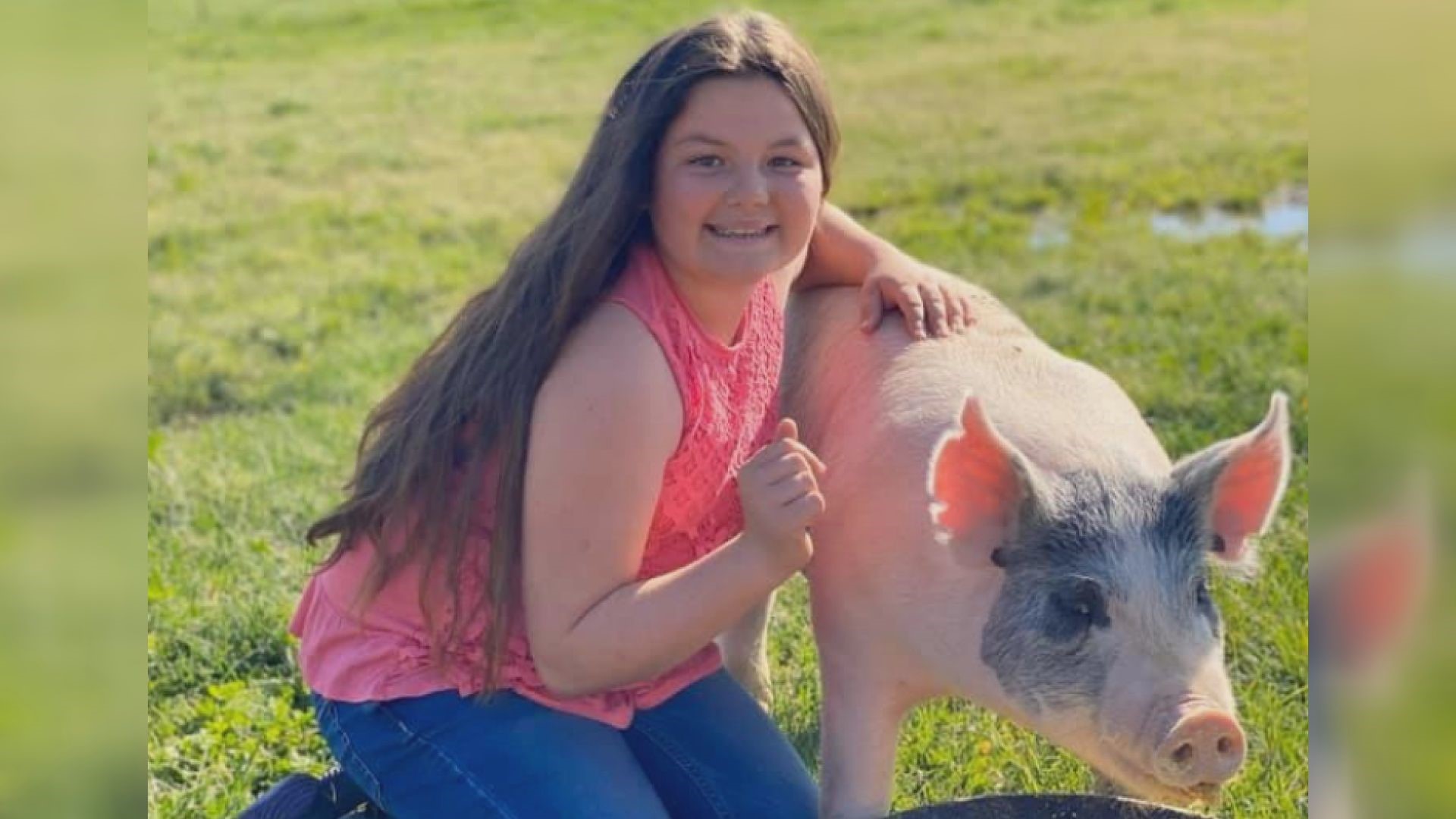SACRAMENTO, Calif. — With county fair cancellations rolling in due to the coronavirus pandemic, California's Future Farmers of America could be missing out on hundreds to thousands of dollars.
FFA and 4-H students invest hundreds and thousands of their own dollars to raise an animal project and sell it at the county fair or state fair, but, due to coronavirus-related fair cancellations, that won’t happen for 2020.
“To be honest, these auctions occur to support these students,” said Matt Patton, Executive Director for California FFA Foundation. “People that come to these auctions are paying above market value for the animals because they believe this is good for kids and teaches them good skill sets and a good work ethic.”
Instead, many will have to venture into a vastly wide world of virtual auctions, where auctions happen daily and clients make up more than just their community supporters. Patton says, even with some local community support in the feed, the coronavirus impact will leave their auction totals short hundreds to thousands of dollars compared to a normal year.
“I think financial losses for students are going to be greater than they are at a typical auction,” said Patton.
It's arguably the only certainty that Mike Albiani and the rest of the Sacramento County Fair board were staring at in the lead up to the fair’s cancellation.
While supporters normally buy these animals projects well above market value, Albiani says that expectation is being adjusted this year. Instead of premium rates, the goal is a recoup on investment.
“For some kids, this might be a year that the goal of the sale is ‘let’s see if we can get as many of these kids to break even as we can,” said, Albiani, who also serves as FFA Advisor for Elk Grove.
RELATED:
His students’ animal projects date back as far as October. Some students poured up to $3,000 of their own money into raising a steer project and others invested around $500, depending on the animal.
Albiani saw the writing on the wall for the Sacramento County Fair some time ago, and, as a result, their game plan changed to make the most out of the virtual auction venue.
Students would normally visit businesses to introduce their projects and write marketing letters to invite potential buyers to the livestock auction. With stay at home orders, the in-person visits aren’t happening.
“We can’t encourage them to do the in-person visits, but we are encouraging [them to use the telephone, use social media, and other ways to engage the buyer and let them know what is going on,” Albiani said.
On the school’s end, they’re marketing their students’ projects with an online presence. Albiani says they’re putting out information showing just how much these kids have invested in the projects to help students recoup their costs.
“Our main purpose is to get them to market weight, get them market-ready so that… hopefully, the buyers will come to our online sale and support them like they have in the past,” Albiani said.
The optimist in Albiani is hoping supporters come through and help the students, but Patton believes the coronavirus impact could be spelling out some trouble for California’s future farmers.
“I think there’s a possibility, based on the economy currently and the difference in the way these sales are occurring, that some students are going to lose money on their projects,” Patton said.
Jay Carlson, Agriculture Programs Manager at the California State Fair, sees the same problem. The local families and businesses that supported FFA students with those premium rates are also feeling the hit from the pandemic.
“They’re not able to generate income as well, so the expectation that they’re going to be able to support fairs and kids on the same level is really not realistic,” Carlson said.
RELATED:
Patton says the key element this year is to be proactive leading up to the auction by having students line up buyers ahead of time and marketing their animal.
If an animal doesn’t sell, there’ll be a resale on the animals to help them get sold at market price, but, in that instance, the market price will likely be significantly lower than what the student invested.
Patton says anyone willing to help these future farmers should get ahold of their local fair office, so they can direct you on how to help. For the Sacramento County Fair, their website will walk you through the process and detail the online auction that will be coming up in May.
FOR NEWS IN YOUR COMMUNITY, DOWNLOAD OUR APP:
►Stay In the Know! Sign up now for the Daily Blend Newsletter



